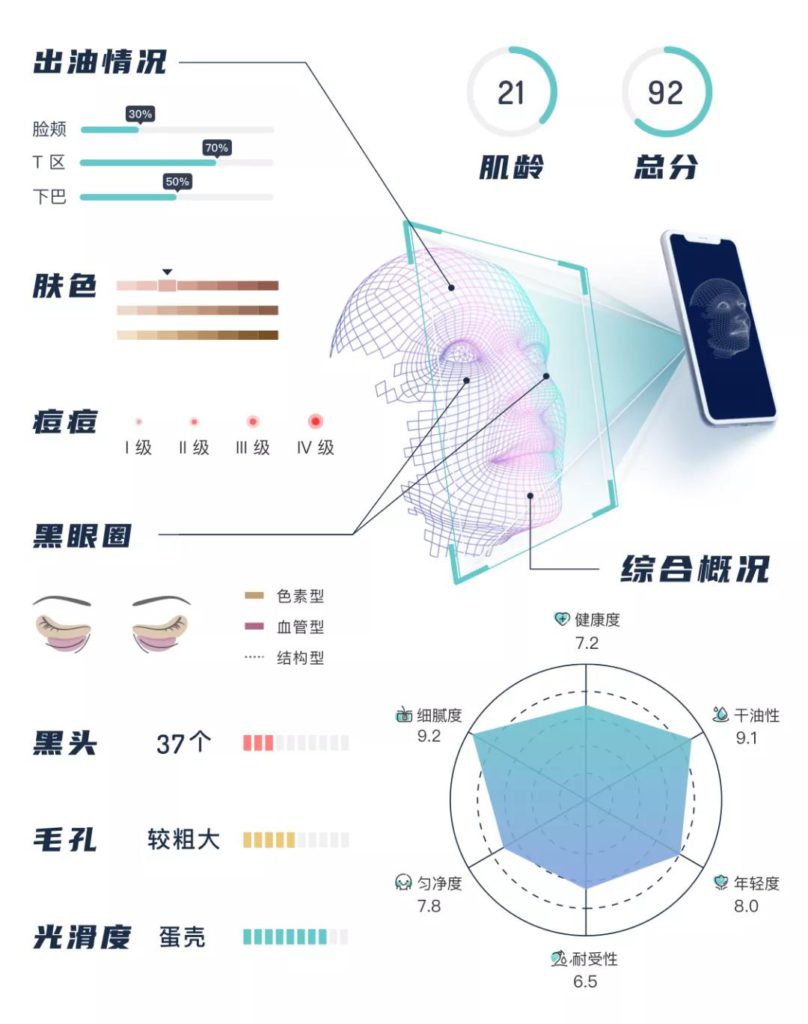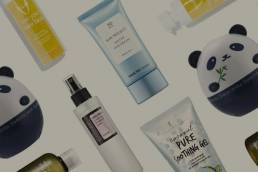The global beauty industry is a $530 billion industry and growing fast. It is estimated that it will reach over $900 billion by 2025. The growth is due to the rise in online sales, traditional retailers launching their own brands, and the consumer’s willingness to search and try new brands. Thanks to emerging technologies, beauty brands are able to adjust to their customer’s demands more effectively than ever before.
The latest trend in the beauty industry is the use of AI and big data. It is used to better understand their customers and to personalize products tailored to their needs. A beauty startup called LAKELAB is doing just that. LAKELAB has developed a tool that leverages AI, big data, and facial recognition to deliver/recommend beauty products tailored to their customers. We will examine some of the ways this innovative beauty startup is using AI and big data to change the beauty industry. LAKELAB is a part of the NX NIVEA Accelerator Program which is led by the German skincare giant Beiersdorf. The beauty accelerator program aims to innovate and revolutionize the beauty industry by collaborating with beauty startups from China and South Korea.
Using AI to make better use of data and understand trends
We now live in a world of big data. We have access to more data than ever before. However, less than 1% of the data that organizations have are ever used. Let alone used to make any meaningful decisions.
What AI allows you to do is analyze your data to look for important patterns. Due to the fact that AI can go through vast amounts of data, they are more effective at finding these patterns than humans. LAKELAB can help users understand their skin condition better by analyzing the following indicators by image recognition technology:
- Oil secretion levels
- The fineness of pores
- Number of blackheads
- Redness
- Skin sensitivity
- Skin tone
- Acne distribution
- Dark circles
All this data is analyzed using AI technology to better understand their customer’s faces to offer personalized beauty products. AI can locate each scene and grade it according to its severity. Its classification accuracy rate stands at 93.6% In addition, it can calculate the oil levels on each part of the face with an accuracy of 95.7%. With over 11.9 million registered users, AI is needed to better understand the data collected.
AI can help understand customer’s needs
In order for beauty brands to increase their sales, they need to understand their customer’s preferences. AI algorithms can analyze comments, reviews, and feedback posted by their customers. It can do so whether it is on their website, questionnaires, or social media channels.

With this data, brands can create products that their customers will most likely buy. Products recommended by the beauty and skincare vertical platform “You look so good today (c2h4)” are carefully chosen by analyzing data. This includes everything from facial recognition technology to questionnaires to deliver the products that are most likely to be a hit.
Customers can simply fill out a questionnaire in which they provide simple yes or no answers regarding their face and skincare routine. Then LAKELAB uses AI to help better understand the needs of their customers.
“Utilizing the big data throughout product development helps us to think more from the perspective of users. This is also one of the advantages of the brand. The skin big data platform and the user operation capabilities together constitute the entry barrier of the brand.” MaYang, one of the founders of LAKELAB says.
In the past, these questionnaires were given to a specialist or data scientist to inspect them. They will try and use their human judgment, experience, and expertise to infer patterns from this data. However, even a small questionnaire with only 10 questions can generate thousands and sometimes millions of different combinations of answers.
Therefore it is impossible for a human to memorize and identify patterns from data of this kind. This is a perfect case to use AI which can use a clustering algorithm to analyze the questionnaire and segment customers based on their answers.
AI and Big Data can offer a more intelligent and personalized service for customers
If a beauty brand has better insights and better customer understanding, this then allows brands to offer intelligent services. Brands can use the insights and data they are collecting from their customers in order to automatically recommend the best to their customers. Major companies like Amazon and Netflix are already using this strategy. It is very difficult for a human to target one particular customer to offer a personalized service that would appeal to that particular customer.
In the case of LAKELAB, they provide a tracking service for users to check their skin condition on a regular basis. The reason is that people have different skin types. Moreover, skin types can change over time due to weather, diet, stress, or lifestyle. In order for them to deliver customized skincare products such as toners, serums, and emulsions they will need up-to-date information about their customers. This not only offers customers a more personalized skincare product/recommendation but also an up-to-date analysis of the condition of their face.
The Future of the Beauty Industry
Shopping for the right beauty products online can be tedious. There are just too many brands selling similar products while at the same time. All claim to provide amazing results. Most end up going with recommendations from friends or beauty influencers. However, in most cases, customers end up purchasing beauty products that may not work for their particular skin type.
In order to offer customers a more personalized experience, LAKELAB utilizes AI and big data. They use these two technologies to better understand the data collected through their app or questionnaire. Once a user signs up with LAKELAB, a beauty profile is created and is processed by LAKELAB’s AI algorithm. Then it creates the best possible beauty product/recommendation for their customer. These are just a few examples of how beauty brands can utilize AI and big data to connect with their customers. The possibilities are endless which is why it is the future of the beauty industry.
Related Posts



